Listening skills Alphabet Worksheets for Ages 4-6
8 filtered results
-
From - To
Our "Listening Skills Alphabet Worksheets for Ages 4-6" are specially designed to cultivate both auditory comprehension and alphabet familiarity in young learners. Each engaging activity seamlessly combines listening exercises with alphabet learning, encouraging children to enhance their attention span and follow instructions. Illustrated with vibrant images, these worksheets make learning an immersive and fun experience. Ideal for preschool and kindergarten levels, they help kids develop essential skills in a playful yet educational manner. Equip your little ones with the tools to succeed in literacy and beyond, laying a strong foundation for future learning adventures.


Baa Baa Black Sheep Printable
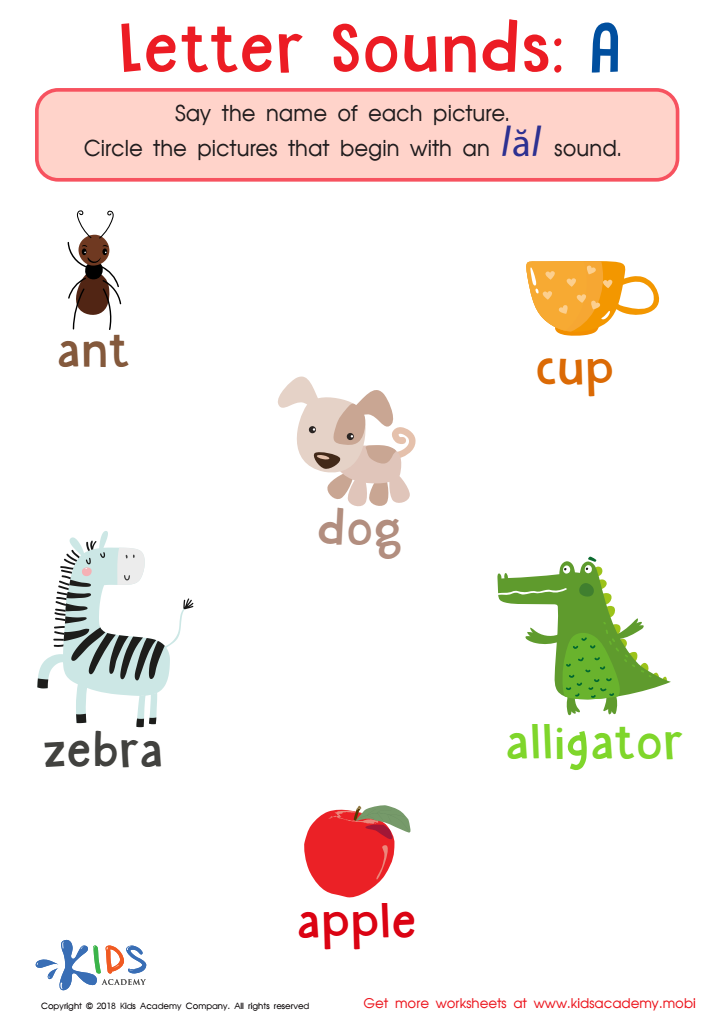

Letter A Sounds Worksheet
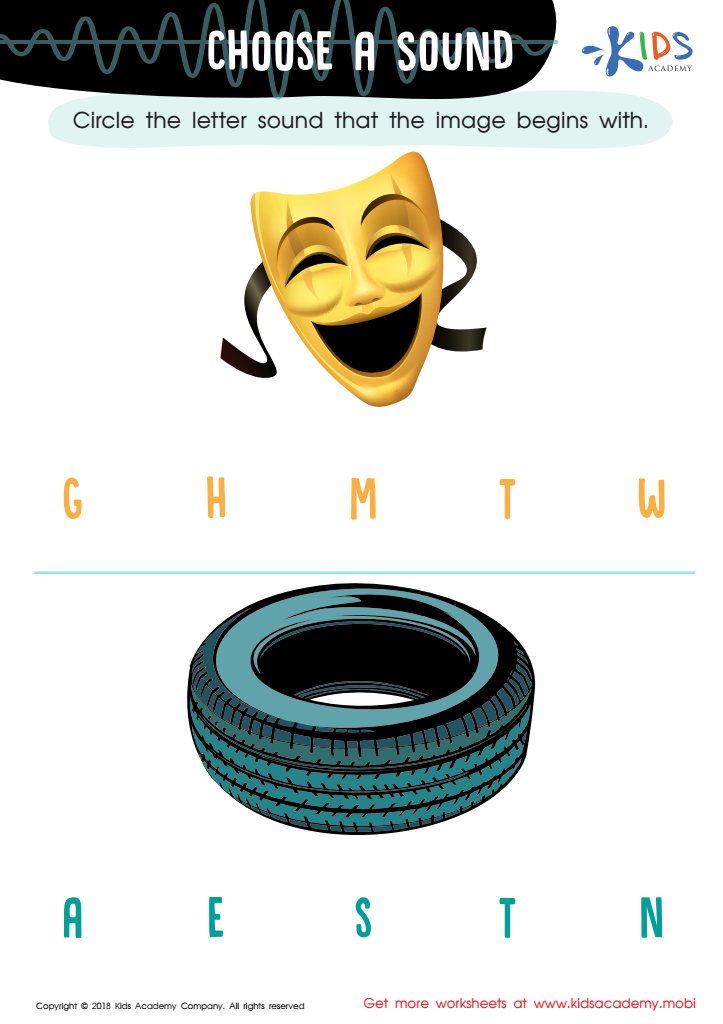

Choose a Sound Worksheet
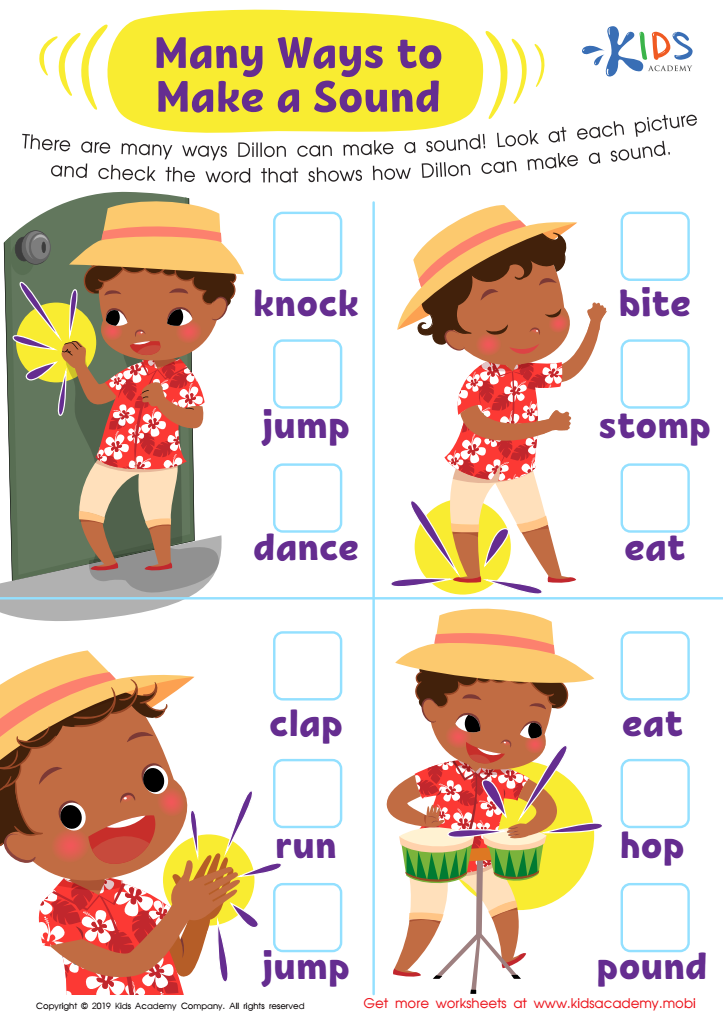

Many Ways to Make a Sound Worksheet
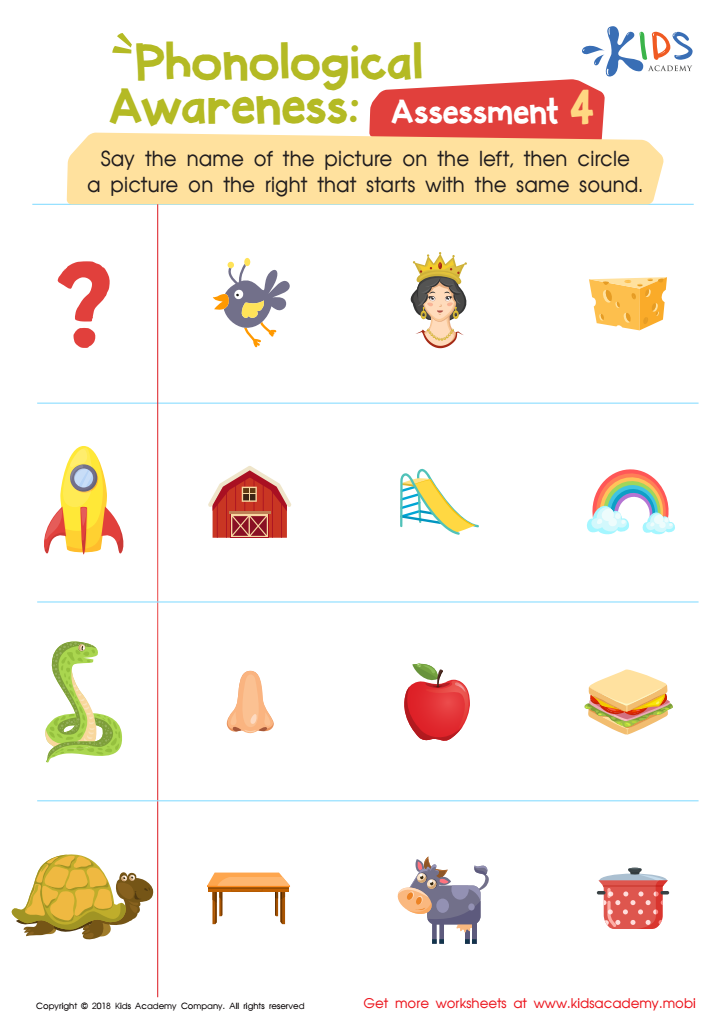

Phonological Awareness: Assessment 4 Worksheet
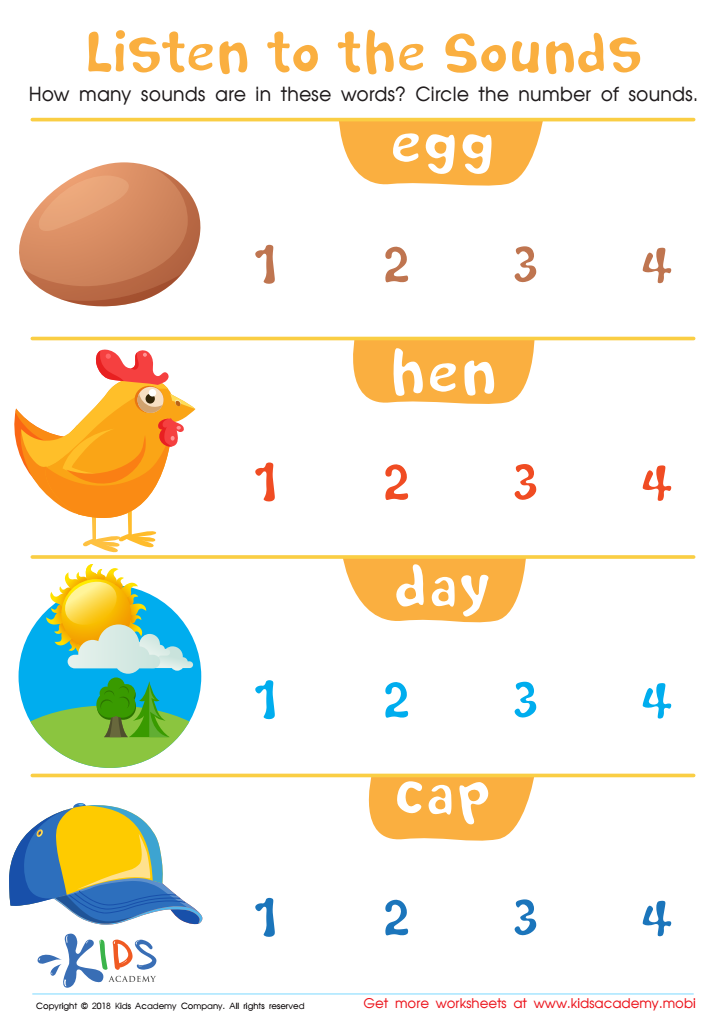

Listen to the Sounds Worksheet
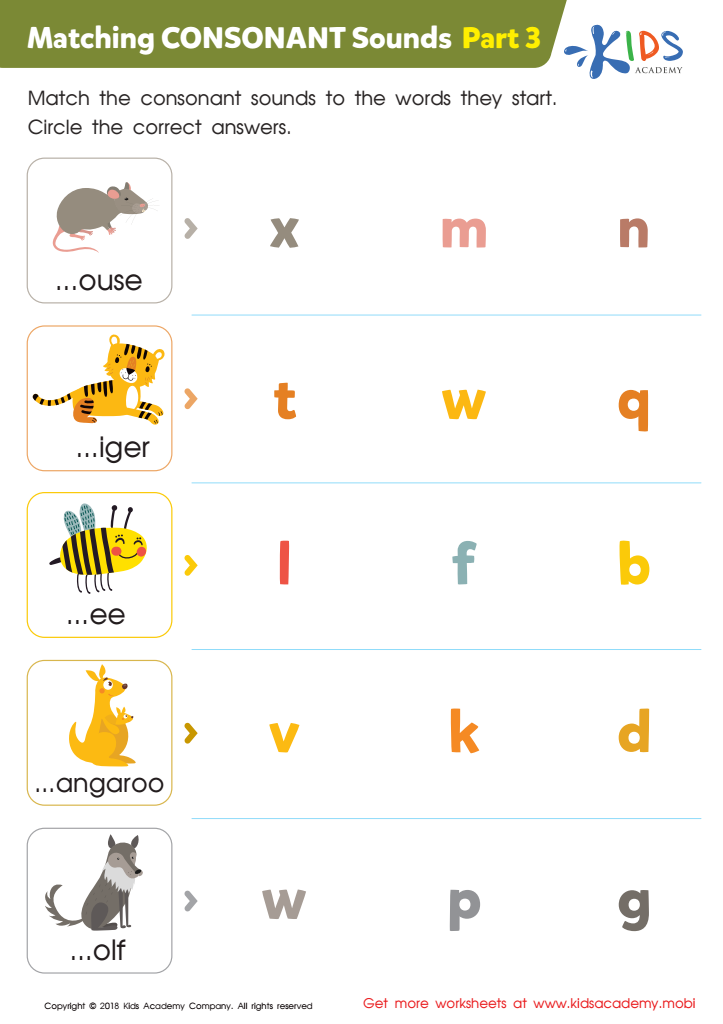

Matching Consonant Sounds: Part 3 Worksheet
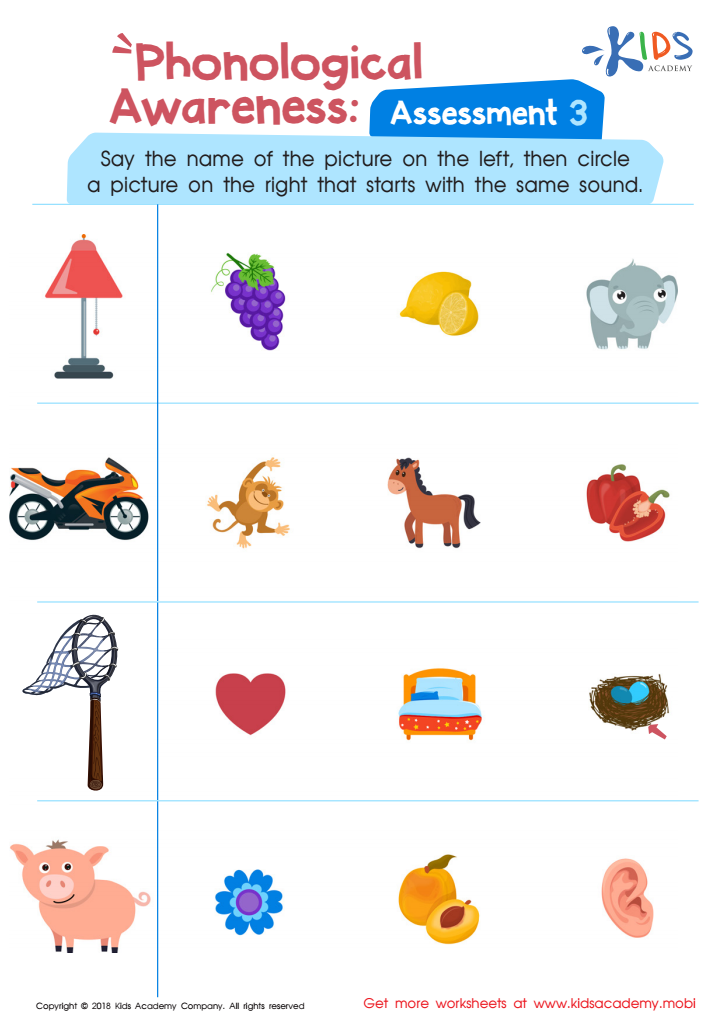

Phonological Awareness: Assessment 3 Worksheet
Listening skills are a cornerstone of a child's early development, especially at ages 4-6. For parents and teachers, fostering these skills through the Alphabet can be both engaging and educational. At this critical age, children are forming the foundations for literacy, communication, and social skills. Integrating listening exercises with alphabet learning helps in several ways.
First, auditory discrimination—being able to distinguish between different sounds—is crucial for recognizing letters and their phonetic sounds. By listening to the alphabet being pronounced, children can better grasp the subtle differences between letters like "B" and "D” or "M" and "N.” This lays a foundation for reading and writing, where phonemic awareness plays a critical role.
Second, listening activities such as songs, rhymes, and stories involving the alphabet strengthen memory and attention span. Active listening helps children tune in to the structure and sequence of words, enhancing their vocabulary and comprehension skills.
Additionally, good listening skills are vital for effective communication. They enable children to follow instructions better, participate in group activities, and develop empathy by understanding others.
For parents and teachers, prioritizing listening skills tied to alphabet learning offers an enriching, multi-sensory approach to early education, setting the stage for future academic success and effective communication skills.

 Assign to My Students
Assign to My Students

















